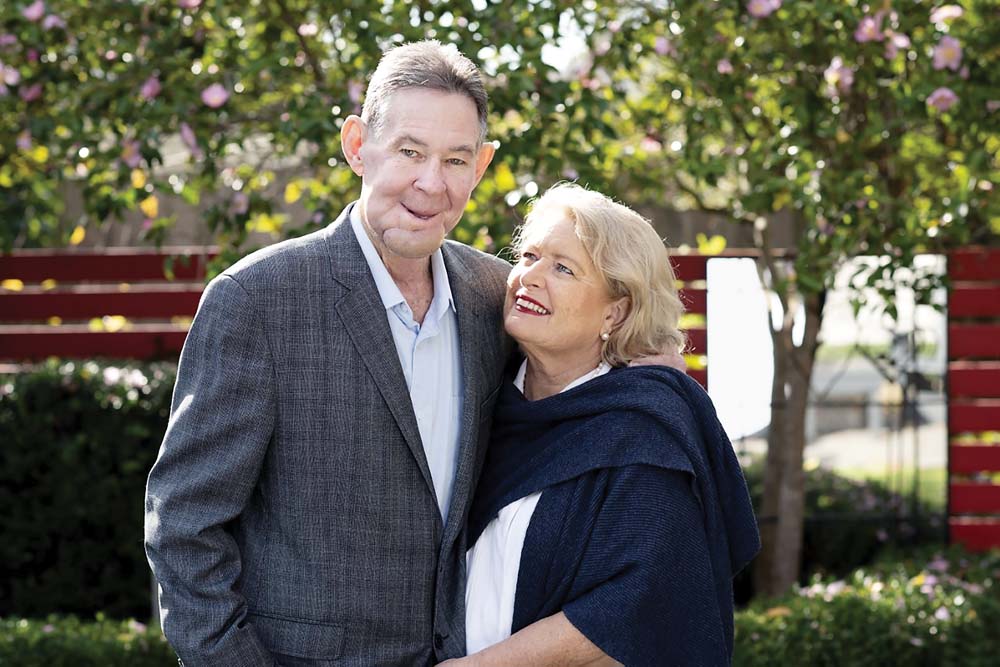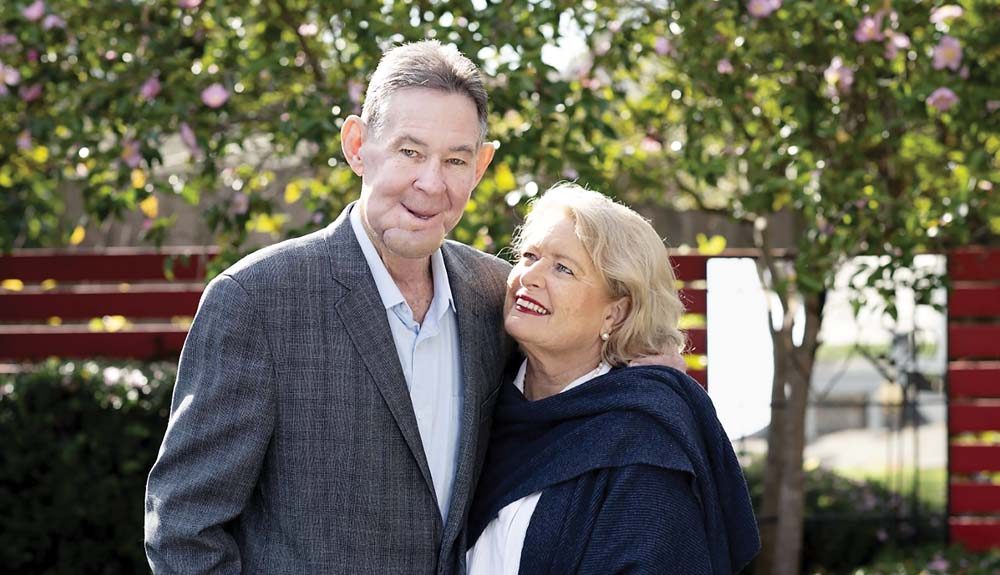
TREATMENT for head and neck cancers affecting his face as well as his eating, drinking and speech have been life-changing for Steve Mahoney, of Mornington.
Unlike other types of cancers, the visible scars and side effects of his treatment have changed the way he looks and can’t be hidden.
On top of this, basic things like going on outings, attending functions, mowing the lawn, gardening, or even washing the car, take a huge toll on Mr Mahoney as the side effects include being extremely tired after even basic activities.
Despite this, there are so many things that will remain the same for Mr Mahoney and wife Robyn, such as special events they like to attend, including the Melbourne Cup, NRL season and family gatherings.
They include being with supportive family and friends that love and care for them – even the company of friends in Townsville who make Mr Mahoney feel normal by calling him “Sid”. And the fun of bringing up the same stories the couple share, and making them sound bigger and better than the previous time …
The couple are grateful for funds provided through Dry July contributions which enabled The Royal Melbourne Hospital to provide essential services to help Mr Mahoney get through his cancer journey.
This year’s Dry July donations topped a $10 million, with more than 38,000 Australians going dry to raise funds for those affected by cancer.
The hospital – one of 33 beneficiaries of funds – received $71,754 to furnish and provide a dedicated room for patients like Mr Mahoney needing privacy and dignity when they were receiving treatment and having to deal with the challenges of tube feeding and stomach pegs.
Ms Mahoney has been a great support to her husband and has shared just how much people dealing with cancer feel – not just physically but mentally. She said: “The time after treatment for cancer is often called ‘survivorship’.
“Getting used to life after cancer can take some time.
“Many people say cancer changes them and that they feel different, even if they look the same. People adjust in different ways, but people often feel that you and the things that are important to you have changed. This is sometimes described as your ‘new normal’.
“We would like to think our new normal is much the same as our old normal: living and loving life, and sharing the most precious time and having adventures with our family and friends.
“We accomplished two major things during ‘Dryish July’ – 12 days without alcohol but, more importantly, reaching our target of $5000 and our team going beyond that by raising $8500 – so far.”
First published in the Mornington News – 8 December 2020


